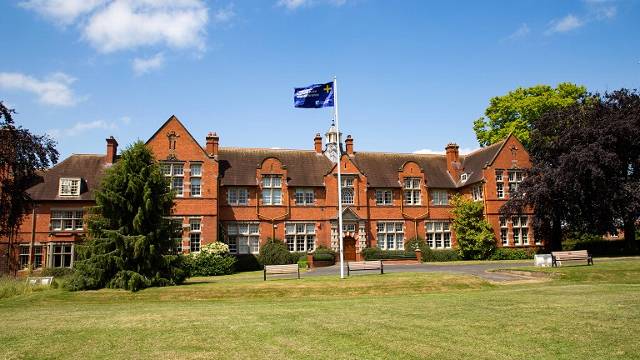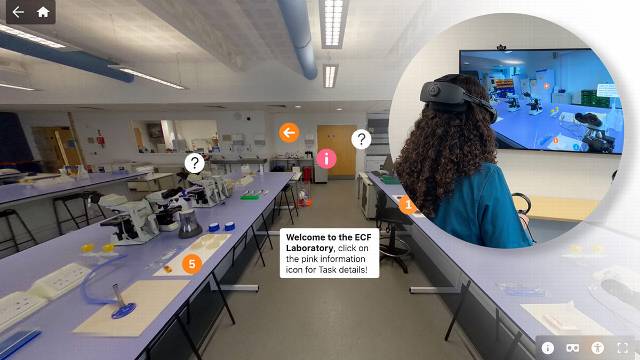
Today is International Day of Women and Girls in Science. And here's just one of the many female scientists developing her career at Harper Adams.
Final year environmental management student Steph Poole, 23, is working on an interesting dissertation project that has potential to develop into something far greater.
The title of Steph's dissertation is 'Quantifying plastics and connecting possible drivers of pollution within a river', setting out her objectives to understand how and why our rivers are so polluted. "I'm focusing on the River Corve," Steph explained, "as a local minor river that is a tributary of the Teme and Severn. From my research, the River Severn has a high percentage of plastic so I'm interested to see how this may impact the Corve."
Steph spoke about finding the best way to collect her data samples, saying: "I've built a DIY version of a manta trawl net. They're used by large organsations but can be very expensive, hence why I've had to make my own. Using pond filter nets - they're similar, just a slightly different shape - I attached soil pipes and wood planks to make a net on a budget. Thankfully Harper Estates were able to help me with collecting wood but the rest was down to me.
"The manta trawl net idea is one of many ways to collect plastic. However, because I wanted some academics to compare and refer to, I'm using the same net as research done by GreenPeace (2018) and Dr Christian Laforsch and Dr Martin Loder (2018). I'm hoping my research will be a microcosmic version."
The BSc Wildlife Conservation with Natural Resource Management student commented on her aims: "Ideally I would like to test in the different parts of the Corve. Currently two land owners have agreed to let me onto their land so I can begin trials. I'll be leaving the nets in for 12 hours to filter our whatever may be in the water.
"I'd love to make this a wider scope project, whether through Masters research or the undergraduate research of other students in a collaborative format. As plastic is such a key term at the moment, furthering our research to understand other pollution drivers whether through rivers, oceans or atmospheric contamination will help to benefit the future of our waters."
For her fellow scientists starting up their research project, Steph said this: "Start working on your project early on. Try and think of as many options and ideas as possible because, if a roadblock appears, you have an alternative to hand.
"Equally, see if you can collaborate with other people. Had I have thought about my project earlier, I could have worked with an engineer to build my nets and my research would have been part of the testing process. Working together would benefit both parties."
Should you be interested in the futures of our waters and being a leading woman in science, visit us on our Open Day to see how you can get involved. You can register your interest below.
Register
 Blog: Trio of visits start historic year for Development and Alumni Relations department
2026 is set to be a bumper year for the Development and Alumni Relations Department at Harper Adams - as the University prepa …
Posted
Today
Blog: Trio of visits start historic year for Development and Alumni Relations department
2026 is set to be a bumper year for the Development and Alumni Relations Department at Harper Adams - as the University prepa …
Posted
Today





